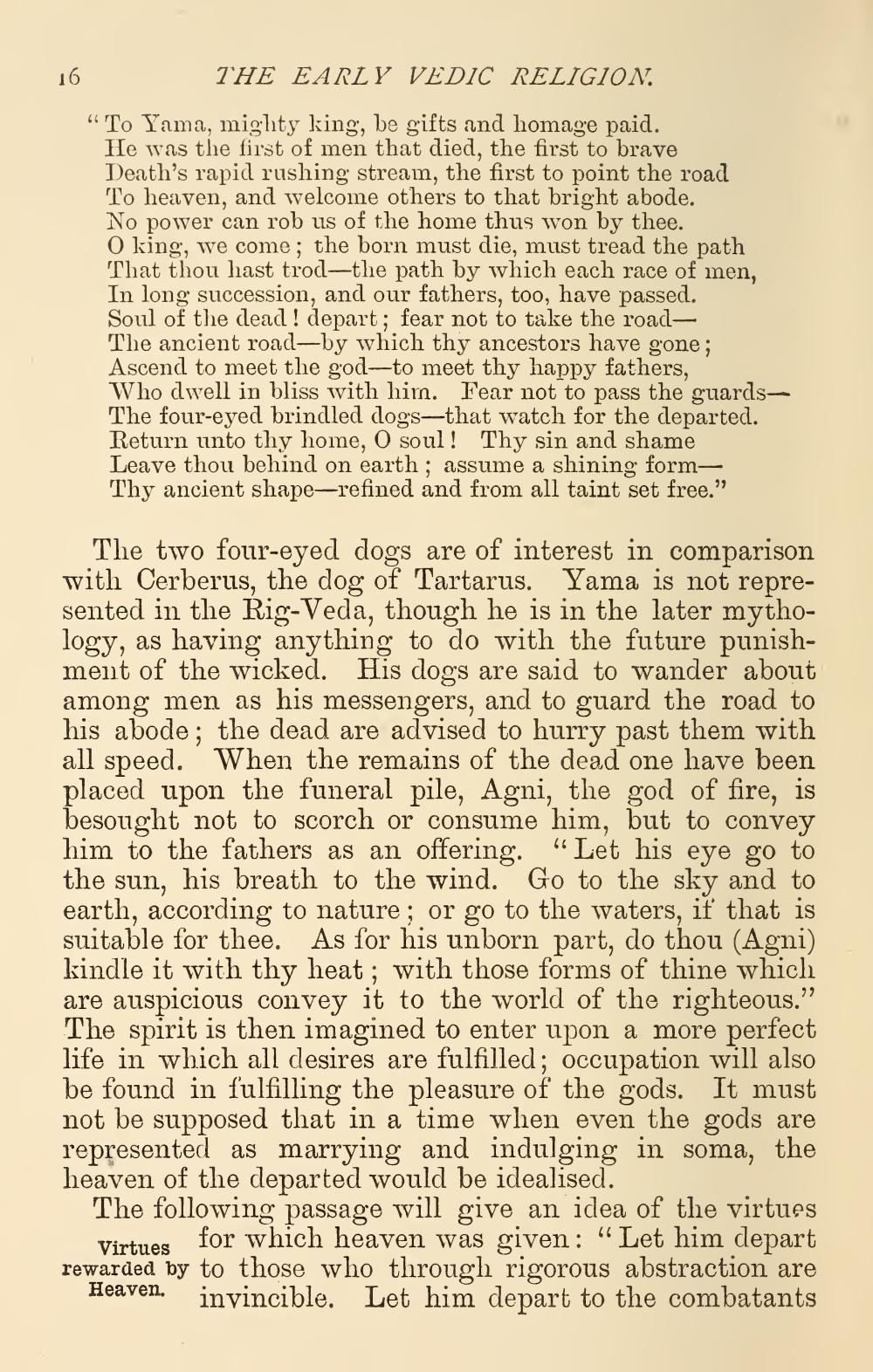________________
16
THE EARLY VEDIC RELIGION. “To Yama, mighty king, be gifts and homage paid. He was the first of men that died, the first to brave Death's rapid rushing stream, the first to point the road To heaven, and welcome others to that bright abode. No power can rob us of the home thus won by thee. O king, we come; the born must die, must tread the path That thou hast trod-the path by which each race of men, In long succession, and our fathers, too, have passed. Soul of the dead ! depart; fear not to take the roadThe ancient road-by which thy ancestors have gone; Ascend to meet the god—to meet thy happy fathers, Who dwell in bliss with him. Fear not to pass the guardsThe four-eyed brindled dogs-that watch for the departed. Return unto thy home, O soul! Thy sin and shame Leave thou behind on earth; assume a shining formThy ancient shape-refined and from all taint set free."
The two four-eyed dogs are of interest in comparison with Cerberus, the dog of Tartarus. Yama is not represented in the Rig-Veda, though he is in the later mythology, as having anything to do with the future punishment of the wicked. His dogs are said to wander about among men as his messengers, and to guard the road to his abode; the dead are advised to hurry past them with all speed. When the remains of the dead one have been placed upon the funeral pile, Agni, the god of fire, is besought not to scorch or consume him, but to convey him to the fathers as an offering. “Let his eye go to the sun, his breath to the wind. Go to the sky and to earth, according to nature; or go to the waters, if that is suitable for thee. As for his unborn part, do thou (Agni) kindle it with thy heat; with those forms of thine which are auspicious convey it to the world of the righteous.” The spirit is then imagined to enter upon a more perfect life in which all desires are fulfilled; occupation will also be found in fulfilling the pleasure of the gods. It must not be supposed that in a time when even the gods are represented as marrying and indulging in soma, the heaven of the departed would be idealised.
The following passage will give an idea of the virtues
Virtues for which heaven was given: “Let him depart rewarded by to those who through rigorous abstraction are
Heaven. invincible. Let him depart to the combatants




